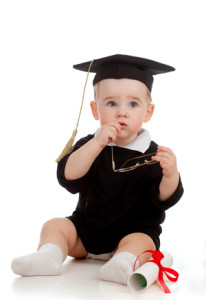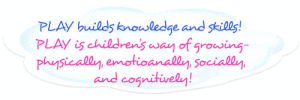 I am appalled. The Education Life section of the February 8 New York Times has a feature article on first graders becoming college ready. This is not about study skills, although I am sure it is part of it. These students are beginning to choose their college! They learn about different universities and research college mascots. Fourth graders are taken for tours of nearby campuses. It’s bad enough when high school students select extracurricular activities with college in mind. But now middle grade students work in food banks, are on safety patrol, or join a robotics club not because they want to serve their community or explore an interest, but because they “need” it for college applications.
I am appalled. The Education Life section of the February 8 New York Times has a feature article on first graders becoming college ready. This is not about study skills, although I am sure it is part of it. These students are beginning to choose their college! They learn about different universities and research college mascots. Fourth graders are taken for tours of nearby campuses. It’s bad enough when high school students select extracurricular activities with college in mind. But now middle grade students work in food banks, are on safety patrol, or join a robotics club not because they want to serve their community or explore an interest, but because they “need” it for college applications.
I have no problem with recognizing that habits of mind such as persistence, initiative, and self-direction need to begin early. I can agree with many aspects of Common Core such as deeper reading, critical thinking, and doing research on focused questions (hopefully Essential Questions promoting inquiry-based learning). I don’t believe the tests promote those objectives, and I think good teachers have been doing this all along. Teachers –and librarians—have been blamed for poor student performance when poverty, unsafe schools, and limited access to a print rich environment play a far more significant role.
Having first graders think about college is not a bad thing in itself. Just as they know middle and high school will follow elementary school, they should be aware that college is an important next step—although not necessarily a path they all must follow. What concerns me is the College Readiness mantra permeating all of education. Our children are becoming automatons programmed in a single direction. Anything non-academic is being stripped away.
A kindergarten teacher with twenty-five years’ experience once told me her students know much more than those she had ten years ago—except how to play. We have reverted back to the days when children took on adult work as soon as they were able. We are eliminating childhood and the cost may be great.
Children learn through play. You need only to observe the animal world to see the truth of that statement. In play they test themselves, without getting a grade. In play they discover what they enjoy, without pressure. They follow their interests. They learn because they want to find out more, not because it is needed for the high stakes test. Play helps develop a sense of wonder, a vital “skill” every creative person needs. And creativity is what keeps a society moving forward. Replicating the past leads to stagnation, not innovation.
 John Dewey, probably the most progressive educator, said early in the last century “There is no such thing as educational value in the abstract. The notion that some subjects and methods and that acquaintance with certain facts and truths possess educational value in and of themselves is the reason why traditional education reduced the material of education so largely to a diet of predigested materials.” (Experience and Education). We are still giving students predigested materials and blaming them and the teachers when they are bored and disinterested.
John Dewey, probably the most progressive educator, said early in the last century “There is no such thing as educational value in the abstract. The notion that some subjects and methods and that acquaintance with certain facts and truths possess educational value in and of themselves is the reason why traditional education reduced the material of education so largely to a diet of predigested materials.” (Experience and Education). We are still giving students predigested materials and blaming them and the teachers when they are bored and disinterested.
It’s time to give our students back their childhood so we benefit from their adulthood.

